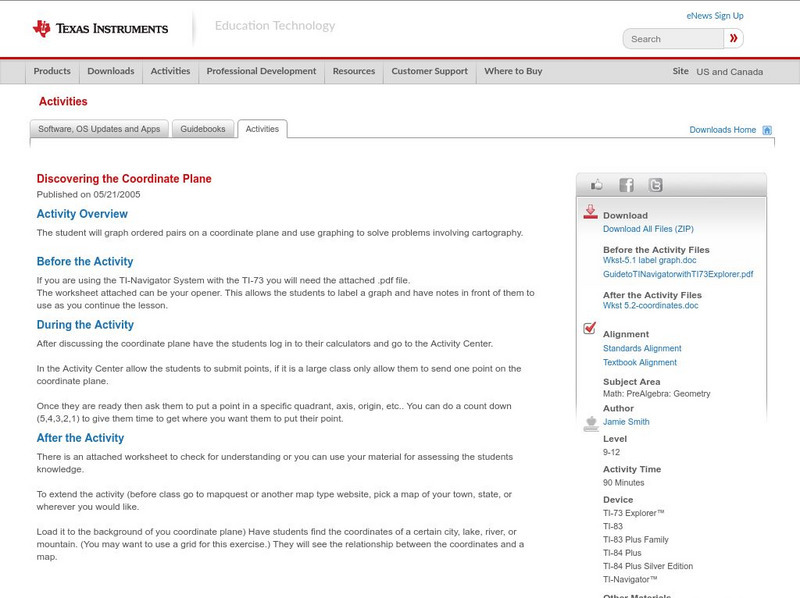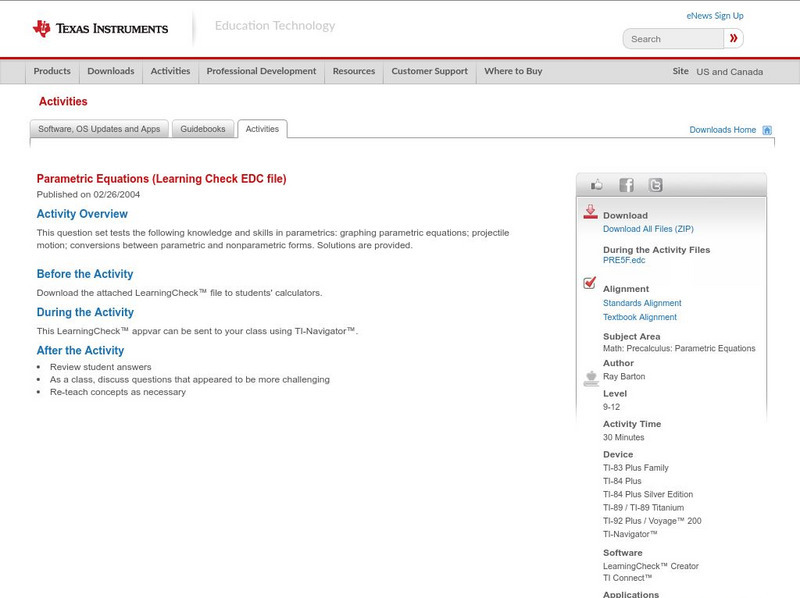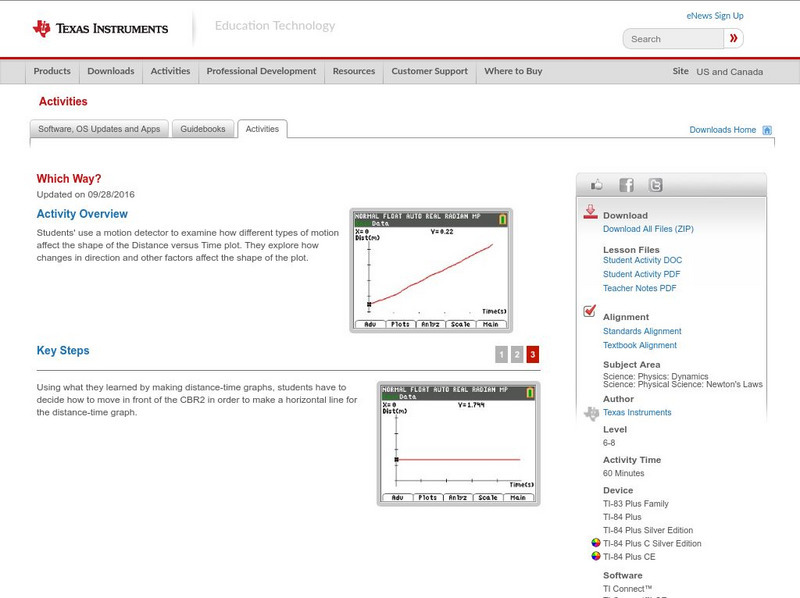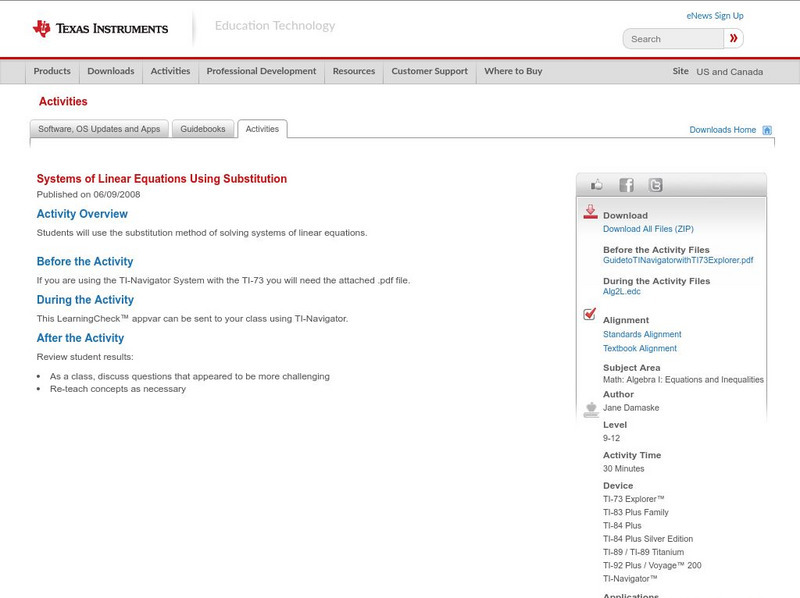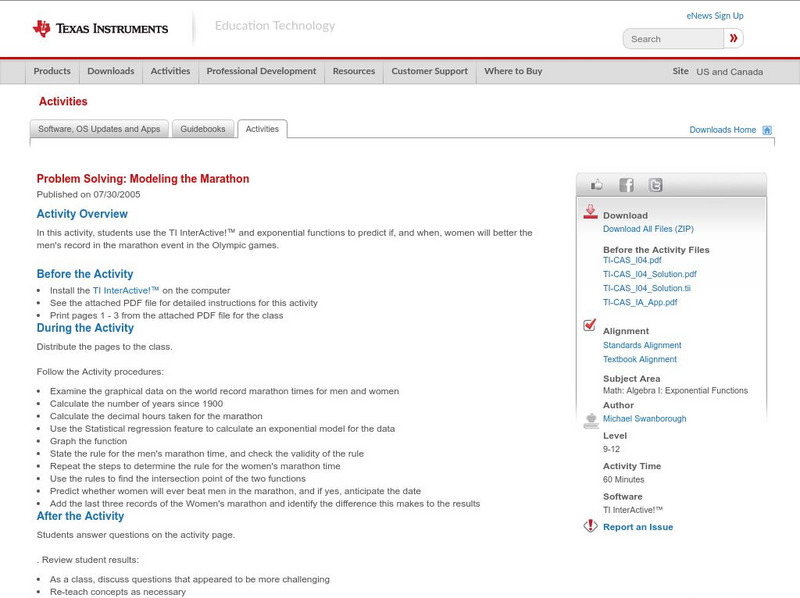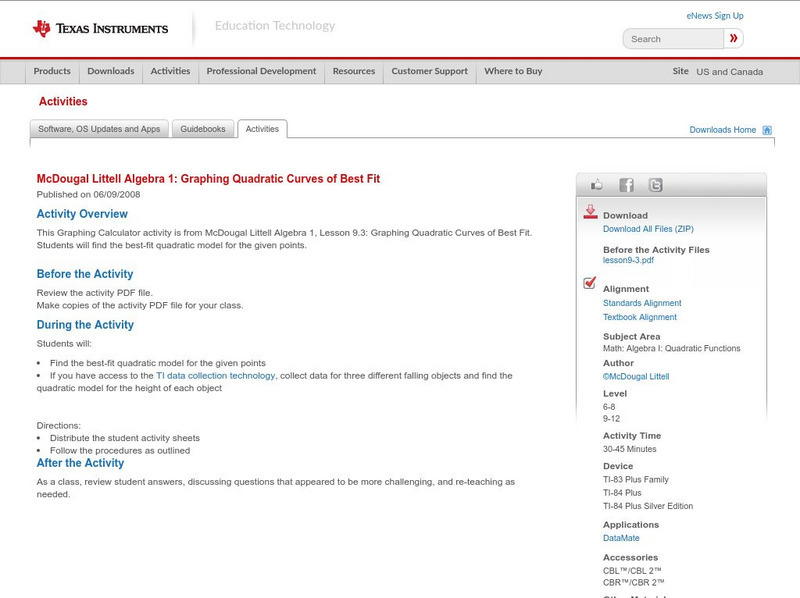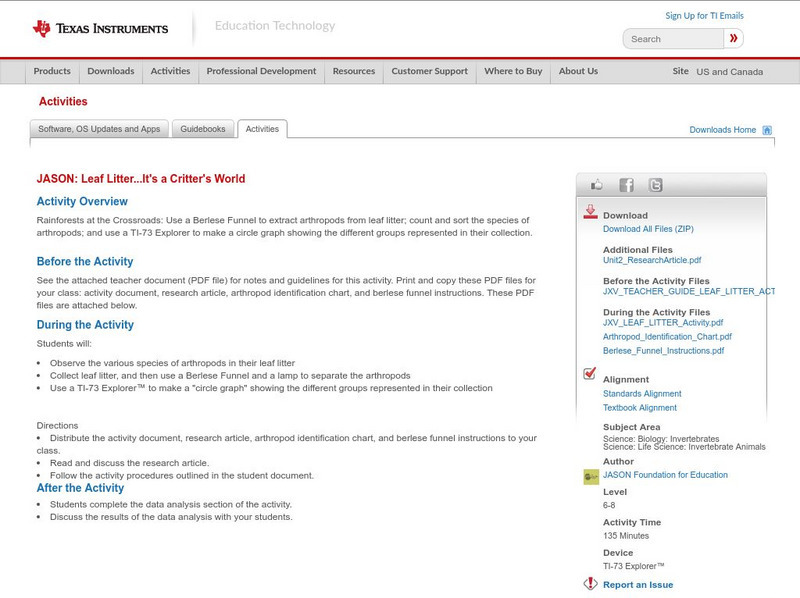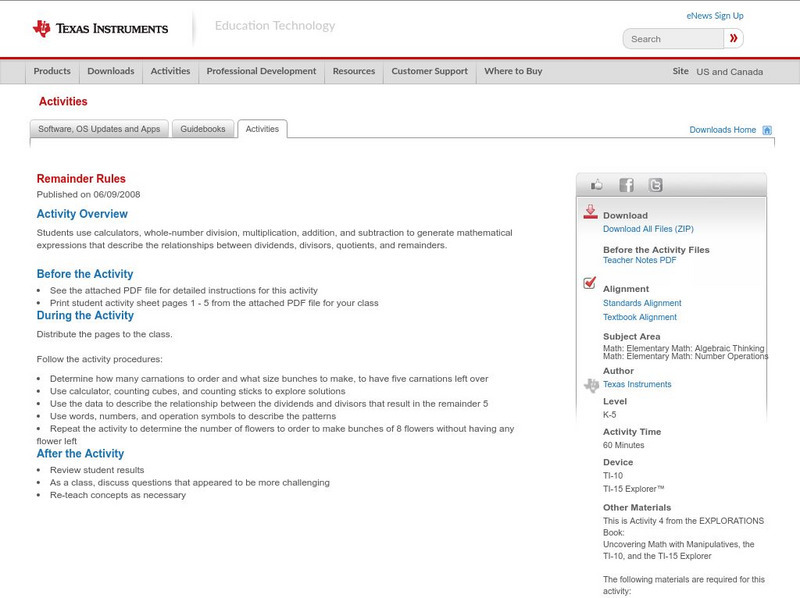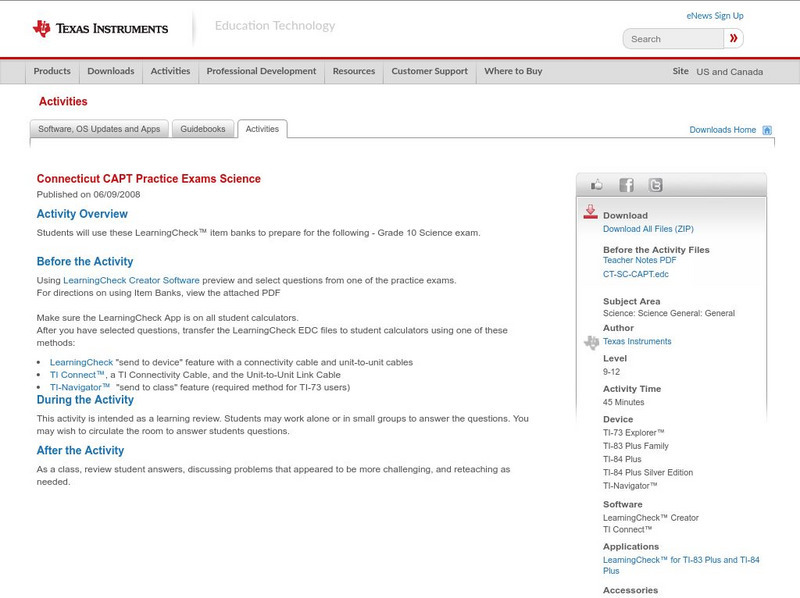Texas Instruments
Texas Instruments: Circle Equations
Students will practice their knowledge of circle equations in the y= form by matching equations with pictures of various circles.
Texas Instruments
Texas Instruments: The Science of Racing: Hitting the Mark
Since running a race car is VERY expensive, race engineers know a great deal about how speed, time and distance relate. In this activity, you will investigate the relationship between distance traveled, speed and elapsed time. You will...
Texas Instruments
Texas Instruments: Discovering the Coordinate Plane
The student will graph ordered pairs on a coordinate plane and use graphing to solve problems involving cartography.
Texas Instruments
Texas Instruments: Parametric Equations
This questions set tests the following knowledge and skills in parametrics: graphing parametric equations; projectile motion; conversions between parametric and nonparametric forms. Solutions are provided.
Texas Instruments
Texas Instruments: Which Way?
Students' use a motion detector to examine how different types of motion affect the shape of the distance versus time plot. They explore how changes in direction and other factors affect the shape of the plot.
Texas Instruments
Texas Instruments: Systems of Linear Equations Using Substitution
Students can use the substitution method of solving systems of linear equations.
Texas Instruments
Texas Instruments: Investigating Properties of Kites
In this activity, students construct kites and investigate their properties. They also relate the properties to squares and rhombi.
Texas Instruments
Texas Instruments: Problem Solving: Modeling the Marathon
In this activity, students use the TI InterActive! and exponential functions to predict if, and when, women will better the men's record in the marathon event in the Olympic games.
Texas Instruments
Texas Instruments: Mc Dougal Littell Algebra: Graph Quadratic Curves of Best Fit
Students will find the best-fit quadratic model for the given points
Texas Instruments
Texas Instruments: What Is Linear Regression?
In this activity, students will explore finding the line of best fit based on the sum of the squares of the residuals and determine what the linear regression line is.
Texas Instruments
Texas Instruments: Solar System
This activity is designed to assess the comprehension of concepts related to the planets and other astronomical bodies in the Solar System.
Texas Instruments
Texas Instruments: Average Value
The definite integral is used to find the average value of a function. It will show the steps of the 2nd Fundamental Theorem and also the alternate approach of having the capabilities of the graphing calculator work the entire problem at...
Texas Instruments
Texas Instruments: Wyoming Paws Practice Exam Grades 6 8 Math
Students can use these LearningCheck item banks to prepare for the PAWS exams.
Texas Instruments
Texas Instruments: California Practice Exams Science Earth Science & Physics
Students can use these LearningCheck item banks to prepare for the following - California CST Earth Science and Physics practice exams.
Texas Instruments
Texas Instruments: Jason: Leaf Litter, It's a Critter's World
Rainforests at the Crossroads: Use a Berlese Funnel to extract arthropods from leaf litter; count and sort the species of arthropods; and use a TI-73 Explorer to make a circle graph showing the different groups represented in their...
Texas Instruments
Texas Instruments: Remainder Rules
Students use calculators, whole-number division, multiplication, addition, and subtraction to generate mathematical expressions that describe the relationships between dividends, divisors, quotients, and remainders.
Texas Instruments
Texas Instruments: Easy Data App
This App brings a new level of simplicity to calculator-based data collection, making data collection simple and fast.
Texas Instruments
Texas Instruments: Making Conjectures and Planning Studies
This activity introduces students to the concept of collecting and analyzing data and using conjectures to formulate new questions.
Texas Instruments
Texas Instruments: Connecticut Capt Practice Exams Science
Students can use these LearningCheck item banks to prepare for the following - Grade 10 Science exam.
Texas Instruments
Texas Instruments: Matrices and Linear Equations
This Computer Algebra System (CAS) activity encourages students to investigate addition, subtraction, and multiplication of matrices. They find the inverse of a matrix. Students also solve a set of linear equations by using matrices.
Texas Instruments
Texas Instruments: Learn How to Manage Calculator Memory Through the Mem Key
This tutorial shows you how to access the Memory screen and use it to find the latest operating system you have installed as well as how to free up Memory Space.
Texas Instruments
Texas Instruments: Falling Objects
In this activity, Students can use a Motion Detector to measure distance and velocity.
Texas Instruments
Texas Instruments: Writing Linear Functions With Traffic Tickets
Students can use traffic tickets to demonstrate their understanding of writing linear functions.
Texas Instruments
Texas Instruments: Buried Objects Adventure 1
Students use the CBR 2 to gather data and identify "buried" objects. They interpret and analyze graphs of height as a function of time, and use the change in the y-coordinates of an ordered pair to determine the height of an object.




